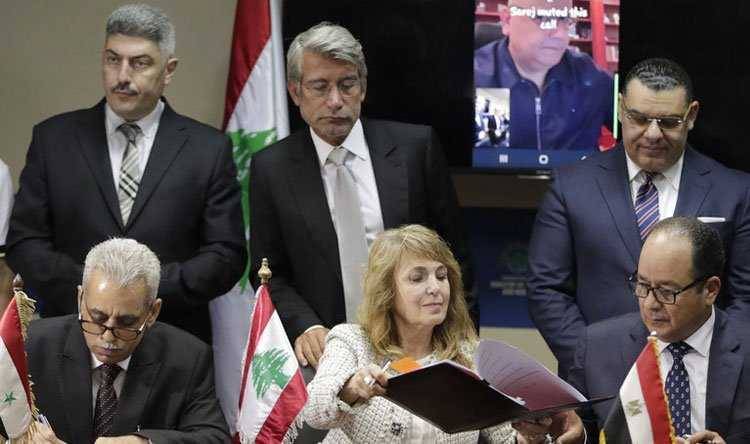The United States welcomed the announcement of an agreement reached between the governments of Lebanon, Egypt, Jordan, and Syria to provide the energy that the Lebanese people urgently need amid a severe energy crisis. A spokesperson for the U.S. State Department, who preferred to remain anonymous, stated that they "look forward to reviewing the final contracts and funding terms from the parties to ensure that this agreement aligns with U.S. policy and addresses any potential concerns regarding sanctions."
She added, "We have not and will not lift or waive the sanctions imposed on Assad and his regime until real and lasting progress is made toward a political solution. We are also opposed to reconstruction in Syria under the current circumstances, and we have been clear about this with our partners."
On Tuesday, Lebanon, Syria, and Egypt signed an agreement to transfer 650 million cubic meters of gas annually from Egypt to Lebanon via Syria, in a ceremony held at Lebanon's Ministry of Energy in Beirut. Lebanon signed two contracts: the first for purchasing gas from Egypt and the second for transporting it through Jordan and Syria to Lebanon. The signing was attended by Lebanon's Director General of Oil, Auror Faghali, the Chairman of the Egyptian Natural Gas Holding Company, Magdy Galal, and the Director General of Syrian Oil, Nabeih Kharasti, according to a report from Al-Hurra in Beirut.
This step comes amid the suffering of Lebanese citizens due to the absence of electricity, which has negatively impacted all sectors. The Minister of Energy in the caretaker government, Walid Fayyad, previously remarked that "the U.S. mediator in the maritime border demarcation issue between Lebanon and Israel, Amos Hochstein, promised during his last visit to Lebanon to mediate with the World Bank to expedite the financing procedures for the gas supply."




